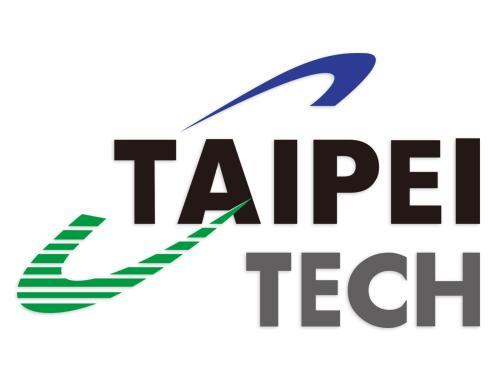Integrated Optoelectronics Lab
Research Field
Tzyy-Jiann Wang received the B.S. and Ph.D. degrees in electrical engineering from National Taiwan University, Taipei, Taiwan. In 2000, he joined the faculty of the Institute of Electro-Optical Engineering, National Taipei University of Technology, Taipei, Taiwan. Since 2008, he has been a Professor. He was the chairman of the Department of Electro-Optical Engineering, National Taipei University of Technology, in 2014–2017. His current research interests include surface-enhanced Raman scattering (SERS) devices, electrochemical sensing devices, optical microring/microdisk resonators, integrated-optic devices, surface-plasmon-resonance (SPR) biosensors, short-pulse fiber lasers, and optoelectronic device simulation.
The Integrated Optoelectronics Laboratory at National Taipei University of Technology is engaged in the research of high-sensitivity detection devices and integrated optoelectronic devices. The research fields include surface-enhanced Raman scattering (SERS) devices, electrochemical sensing devices, optical microring/microdisk resonators, integrated-optic devices, surface-plasmon-resonance (SPR) biosensors, short-pulse fiber lasers, and optoelectronic device simulation.
The Integrated Optoelectronics Laboratory is dedicated to providing students with an immersive research experience in advanced topics, such as Surface-Enhanced Raman Spectroscopy (SERS), electrochemical energy conversion/storage, in-situ/operando Raman analysis, and theoretical studies. This multidisciplinary laboratory serves as a hub for exploring the intricate interplay between optics and electrochemistry, fostering a comprehensive understanding of fundamental principles and practical applications. SERS as a highly sensitive analytical technique leverages the enhancement of Raman scattering signals from molecules adsorbed on nanostructured substrates, which enable the detection of trace-level analytes. Lab members engage in the design and synthesis of innovative multi-dimensional nanocomposites and plasmonic materials that optimize SERS performance, thereby enhancing sensitivity and specificity in various analytical contexts.
In parallel, the laboratory's focus on electrochemical energy systems aims to advance the development of cutting-edge materials for energy storage and conversion applications. Through rigorous experimental protocols and material characterization techniques, lab members investigate the electrochemical properties and performance metrics of these advanced materials, which contribute to the development of more efficient and sustainable energy solutions.
The integration of in-situ/operando Raman analysis within electrochemical research allows for real-time monitoring of dynamic chemical processes, which provide valuable insights into reaction mechanisms and material behavior during operation. This methodological approach not only enhances fundamental understanding but also informs the optimization of materials and device architectures for improved performance.
Theoretical studies play a pivotal role in guiding experimental efforts, employing computational modeling and simulations to predict material interactions and behaviors. By exploring the electronic properties and dynamics of nanocomposites, students gain critical insights that drive innovation in SERS and electrochemical applications.
Through collaborative research initiatives and interdisciplinary partnerships, the Integrated Optoelectronics Laboratory aims to make significant contributions to the fields of optoelectronics, environmental sensing, and sustainable energy technologies. The laboratory environment fosters intellectual curiosity, creativity, and hands-on experience, equipping students with the skills and knowledge necessary to address the complex challenges of contemporary research and industry. In doing so, the laboratory prepares its members to emerge as leaders and innovators in the rapidly evolving domains of science and technology.
- World's Top 2% Scientists 2020, 2021, 2022, 2023, 2024.
- 2023 Taiwan Innotech Expo, Gold Metal Award, Patent: Fabrication Method of Flexible Sensing Substrate by Using Ferroelectric Template
- 2022 Annual Outstanding Research Award, National Taipei University of Technology
- Outstanding poster award in the field of electronic information in the 110th Annual Industry-University Cooperation Project Performance Evaluation Meeting held by the Engineering Department in the Ministry of Science and Technology. Project name: Green process development of surface-enhanced Raman scattering substrates for curved surface detection.
- 2021 Research Leap Award, College of Electrical Engineering and Computer Science, National Taipei University of Technology
- 2007 Outstanding Research Award, College of Electrical Engineering and Computer Science, National Taipei University of Technology
- 2005 Annual research and development achievements in patent application, National Taipei University of Technology
- 1994 Annual Research Award, College of Mechanical and Electrical Engineering, National Taipei University of Technology
- 1993 Annual Research Award, College of Mechanical and Electrical Engineering, National Taipei University of Technology
- 1992 Annual Research Award, School of Mechanical and Electrical Engineering, National Taipei University of Technology
- Ph.D., Department of Electrical Engineering, National Taiwan University
- B.S., Department of Electrical Engineering, National Taiwan University
2 Vacancies
Job Description
We are seeking a motivated and enthusiastic intern to join our research team, focusing on electrochemical conversion and storage. This internship will provide hands-on experience in the design, characterization, and optimization of electrochemical systems for energy conversion and storage applications. The intern will contribute to advancing technologies related to supercapacitors and fuel cells.
Interested candidates are requested to submit your curriculum vitae along with a copy of research papers.
Internship Duration: 3 Months
Compensation: This program offers monthly scholarships designed to cover expenses, such as airfare, accommodation, food, and medical care.
Preferred Intern Education Level
Currently pursuing a PhD in Natural Science or Engineering, with a minimum of one first-author research papers published in non-open access journals.
Skill sets or Qualities
• Focus on accuracy and precision in tasks and projects.
• Proven ability to work collaboratively in a team, sharing ideas and supporting colleagues.
• Willingness to learn and adapt to challenges in changing environments.
• Good written and verbal communication skills for clearly articulating ideas and findings.
